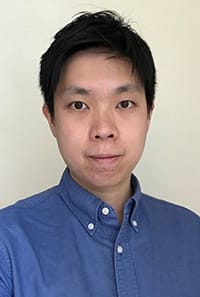Bio-Techne Go Everywhere Travel Grant - March 2018 Recipient Selected!
Our March 2018 Go Everywhere with Bio-Techne Travel Grant has been awarded to an Assistant Professor from Hong Kong Baptist University!
Bio-Techne's Go Everywhere Travel Grant Program awards $1000 USD (or equivalent) to one researcher each month to attend the meeting of their choice. This grant program allows the researcher to attend more targeted meetings in their field and provides funding to support both small and large scientific associations that promote discovery and collaboration.
The recipient of the March 2018 grant is Hoi Leong Xavier Wong, a Research Assistant Professor in the School of Chinese Medicine at Hong Kong Baptist University!

Hoi Leong Xavier Wong, a Research Assistant Professor from Hong Kong Baptist University, is the March 2018 recipient of the Bio-Techne Go Everywhere Travel Grant.
Xavier has chosen to apply the grant to the Tokyo 2018 Cell and Developmental Biology Meeting in Tokyo, Japan June 5-8, 2018.
His work focuses on lymphangiogenesis and a specific membrane type 1-matrix metalloproteinase (MT1-MMP) as a novel suppressor of lymphatic vessel growth. His research has found MT1-MMP-mediated signaling restrains the production of VEGF-C from macrophages through the repression of NF-Kb signaling. His research will continue to uncover the regulation of lymphangiogenesis in both cell autonomous and non-cell autonomous manners.
In his work, Xavier has utilized several antibodies from both R&D Systems and Novus Biologicals. Bio-Techne and our brands are proud to support Xavier’s work and the work of many of the researchers that have applied to our travel grants so far this year. If you are interested in applying to any of our travel grants, please go to www.rndsystems.com/travel.
Research Summary:
Lymphangiogensis is involved in various pathological conditions. Recently, we identified membrane type 1-matrix metalloproteinase (MT1-MMP) as a novel suppressor of lymphatic vessel growth. MT1-MMP-deficient mice exhibit spontaneous systematic lymphangiogenesis. Mechanistically, MT1-MMP directly cleaves LYVE-1 on lymphatic endothelial cells to inhibit LYVE-1-mediated lymphangiogenic responses. In addition, MT1-MMP-mediated PI3Kd signalling restrains the production of VEGF-C from prolymphangiogenic macrophages through repressing the activation of NF-κb signalling. Thus, MT1-MMP regulates lymphangiogenesis in both cell autonomous and non-cell autonomous manners.

